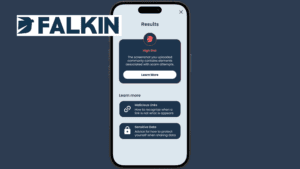The 2024 election is over. The balloons, streamers, and confetti have been swept away; the televised “I-endorse-this-message” commercials are gone; neighborhood lawns are now clear of cardboard campaign signs.
But given the strong opinions surrounding this year’s contest, the political atmosphere is still volatile, as citizens continue to sift through the implications of the outcome. During this period of highly charged passions — for the successful and unsuccessful parties alike — it is possible for professionals across numerous industries to find themselves having to navigate some volatile interactions with others.
Given the financial service industry’s procedural proximity to Washington, it is perhaps even more likely for banking professionals to face some highly charged conversations in the workplace. These can result from colleagues’ comments, customer engagements, and even interactions with ancillary service providers like the FedEx deliverer or the exterminator.
Knowing how to navigate these situations — whether they’re just plain awkward or they evolve into something heated — is a worthwhile skill to have in the aftermath of a highly charged political cycle.
Five Tips for Bankers to Stay Neutral in Politically Charged Workplaces
The Pew Research Center emphasizes the importance of political neutrality for banking professionals to maintain harmonious workplace environments. Further, it suggested five strategies to diffuse tense conversations that may arise among people providing financial services:
1. Acknowledge the Topic Without Engaging:
Acknowledge the sensitive issue briefly, offering recognition without delving into the conversation. For instance, mentioning the following can signal awareness while preventing escalation: “I understand that this is a sensitive issue.”
2. Maintain a Neutral Stance:
Clearly express your intention to keep the conversation neutral. This can be as simple as stating: “I prefer to keep my personal political views separate from work.” This response helps set professional boundaries and avoids conflict.
3. Guide the Conversation Toward Neutral Subjects:
Redirect the conversation toward a more neutral, work-related topic. An example to a colleague could be, “Let’s focus on the needs of that new commercial borrower instead.” Or to a customer, a topic-shifting sentence like the following could be effective: “To stay on track, let me point out some advantages to the financial product we were discussing before.”
4. Engage in Active Listening:
Focus on genuinely understanding the other person’s point of view, even if you disagree. Active listening fosters respect and reduces the chance of escalation, ensuring productive dialogue.
5. Politely Excuse Yourself:
If the discussion becomes heated, exit gracefully with a simple statement like, “I think I’ll step away for a moment.” This allows you to disengage without causing discomfort or conflict.
How to Handle Political Conversations as a Banker
By incorporating these strategies, bankers can maintain a neutral, respectful atmosphere in the workplace, ensuring that discussions remain productive and professional. They can redirect conversations to benignly work-focused territory when interactions wander into politically charged moments.
If you’re a banker, or a professional in the financial world, read more enrichment content from Banking+ and don’t forget to subscribe to our newsletter!



















